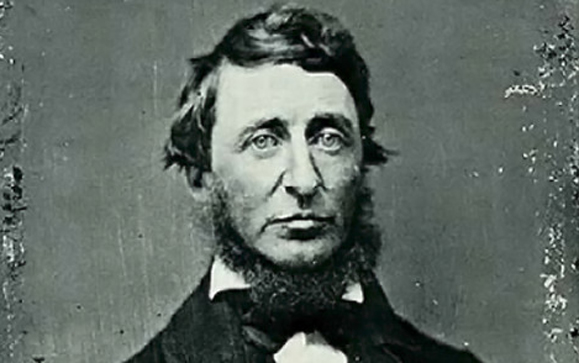“We’re the nation that just had six of our scientists and researchers win Nobel Prizes – and every one of them was an immigrant.”
– @POTUS 3:40 PM • Oct. 13, 2016.
President Obama on Twitter when the 2016 Nobel Prizes were announced.
Welcome to our eighth annual Hall of Fame issue. Our inductees represent the many arenas in which the Irish have impacted the United States. They’ve received numerous awards and accolades for their work in other places, but, being Irish, their much deserved recognition wouldn’t be complete without an award from Irish America.
William Campbell’s work, for which he received the Nobel Prize in 2015, has transformed the lives of millions of people around the globe. He immigrated from Donegal to the U.S. in the 1950s and was recruited out of the University of Madison Wisconsin to work at the American pharmaceutical giant, Merck. He spent his career there, producing life-saving treatments for diseases in humans and animals. Campbell is responsible for the medicine that can kill the parasites that cause River Blindness, saving the sight of millions of people around the globe.
(In these days of anti-immigrant sentiment, it’s worth noting that of the 360 Nobels awarded to Americans in the history of the Nobel Prize, over 100 went to immigrants.)
Another immigrant and honoree, Michael Dowling, is also in the field of healthcare. As CEO of Northwell Health, he oversees 21 hospitals, and served in New York State government for 12 years, including seven years as state director of Health, Education and Human Services. A Limerick native, he will serve as this year’s Grand Marshal of the New York City St. Patrick’s Day Parade – at 256, the oldest and most famous in the country. (See our feature on parades around the U.S. in this issue.) At 17, he arrived in New York and worked 120-hour weeks on the docks cleaning boat engines to put himself through college and help out his family back in Limerick.
Like Dowling, the Irish of earlier generations often entered the workforce as laborers, and these immigrants helped form the first unions. As General President of the Laborers International Union, honoree Terry O’Sullivan has a deep commitment to providing his members with a pathway to a middle-class life. It was the local Laborer’s union in San Francisco that helped his grandmother get by when her husband, an Irish immigrant from Kerry, died at age 37, leaving her with a young son, Terry’s father, and another baby on the way. Today, many of Terry’s workers are immigrants from around the globe, and he looks after them as if they too, were family.
Honoree Kevin White, the athletic director of Duke University, whose ancestors are from Donegal, represents sports and education, two areas that have provided a path to upward social mobility for many Irish. An award-winning coach, Kevin makes sure that his student/athletes perform as well in the classroom as they do on the playing field.
Sister Tesa Fitzgerald, the daughter of immigrants from Kerry and Donegal, embodies all that is good about the Irish. She has the empathy of Mother Jones (born in Cork in 1837, Jones immigrated just after the Famine, and went on to be a fearless fighter for workers rights. Read Mother’s story in this issue). Sister Tesa, with her big and generous heart, cares for countless children whose own mothers are interned. And then helps those mothers get back up on their feet when they leave prison, overcoming the poverty and abuse and lack of education that put them there in the first place. We are proud to have Sister Tesa as an honoree.
In the story of John Wolfe Ambrose, we see again the impact of immigrants on American life. Like Mother Jones, Ambrose, also survived the Famine. He immigrated in 1851 as a 13-year old boy to join his father who was already in New York. From very poor beginnings, he grew up to be a brilliant engineer and developer and turned New York Harbor into the world port it is today.
No photographs exist from the Famine, more properly known as the Great Starvation, the event that forced a million and a half Irish to cross the ocean, and head out into the unknown, but look closely at the photographs of Irish evictions in the 1880s in this issue. Perhaps you will see despair of those Irish homeless etched into the faces of those uprooted refugees of today.
Michael Dowling, speaking at the magazine’s annual Healthcare and Life Sciences 50 Awards, said it best.
“We also have to remind ourselves – and we should remind ourselves of this continuously – that we are all immigrants, or descendants of immigrants. So as you watch TV, and you listen to the stories, and we sit and we take vows about some of the things that we try to accomplish, let us not forget the history, and those that did extraordinary things that probably we, as good as we think we are, would probably never have the courage to do back in those days 100 years ago.
“And that same courage is being personified today by people from all over the world by people searching for what so many others also searched for – opportunity. And who knows, maybe in some future time some of the kids of those people will stand at podiums like this to talk about the major contributions they have just made to the societies they just entered.
“So let’s be proud, proud of our noble profession, proud of our achievements, but always keep in perspective.
“As David Thoreau said, ‘It’s not what you look at that matters; it’s what you see.’”
Mórtas Cine. ♦


Leave a Reply